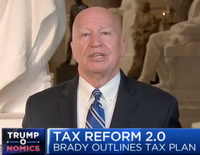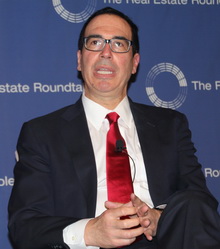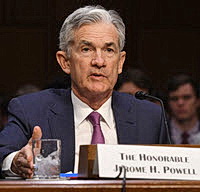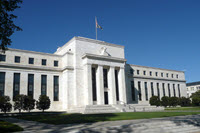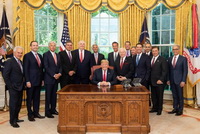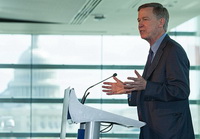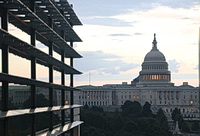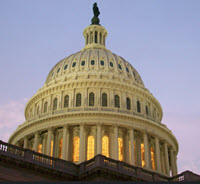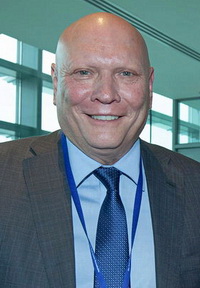Commercial real estate executives continue to see strong and balanced market conditions for the remainder of 2018 and moving forward into the new year, according to The Real Estate Roundtable’s Q4 2018 Economic Sentiment Index released today.
 |
|
Commercial real estate executives continue to see strong and balanced market conditions for the remainder of 2018 and moving forward into the new year, according to The Real Estate Roundtable’s Q4 2018 Economic Sentiment Index.
|
“Our latest Sentiment Index finds commercial real estate industry leaders experiencing continued positive market conditions and cautiously predicting solid performance into 2019. Concerns exist about interest rate and construction cost increases, as well as labor shortages. However, these concerns have not yet caused significant market disruption.” said Roundtable President and CEO Jeffrey DeBoer. “With some exceptions, supply and demand in major markets remains essentially in balance, and access to debt and equity remains strong. Disciplined, not aggressive, development and investment are the current watchwords of smart real estate executives,” DeBoer added.
The Roundtable’s Q4 2018 Sentiment Index registered at 50 — a two point decrease from Q3 2018. [The Overall Index is scored on a scale of 1 to 100 by averaging Current and Future Indices; any score over 50 is viewed as positive.] This quarter’s Current Conditions Index of 53 decreased by three points from the previous quarter. This time last year, the Q4 2017 Current Conditions Index registered at 53 as well, highlighting the sustained equilibrium in the market this past year. This quarter’s Future Conditions Index of 47, decreased by two points from the previous quarter.
The report’s Topline Findings include:
- The Q4 index came in at 50, a two point drop from Q3. Most suggest that current market conditions are positive and expect such conditions to continue into the new year. However, some responders continue to question, “How much longer can this last?”
- Responders pointed to the increase in costs for constructions projects and the corresponding decline in development returns as a concerning market factor. As a result, fewer responders were highly optimistic about market conditions in 2019 as yield becomes increasingly hard to find.
- For the first time in many quarters, a large proportion of responders are indicating a belief that asset values will start declining. However, pricing is expect to stay relatively strong for assets in major markets.
- Responders feel debt and equity capital are plentiful in today’s market. Equity investors and lenders alike continue to show strong appetite for real estate.
Ninety percent of survey participants report Q4 2018 asset values today are “about the same” or “somewhat higher” compared to this time last year. Looking ahead, a minority of participants said they expect values to be “somewhat lower” one year from now with 55% of respondents seeing no significant value declines.
DeBoer noted, “After the midterm elections we look forward to continuing to work on positive, pro-growth national public policy. The nation needs policy action to address the growing labor shortage and infrastructure needs. The terrorism risk insurance act will also need to be extended in the new Congress. We intend to try to help policymakers tackle these and others issues by offering smart research and positive bipartisan advocacy that emphasizes commercial real estate’s contributions to job creation, communities; and retirement savings.”
Data for the Q4 survey was gathered in October by Chicago-based FPL Associates on The Roundtable’s behalf.

